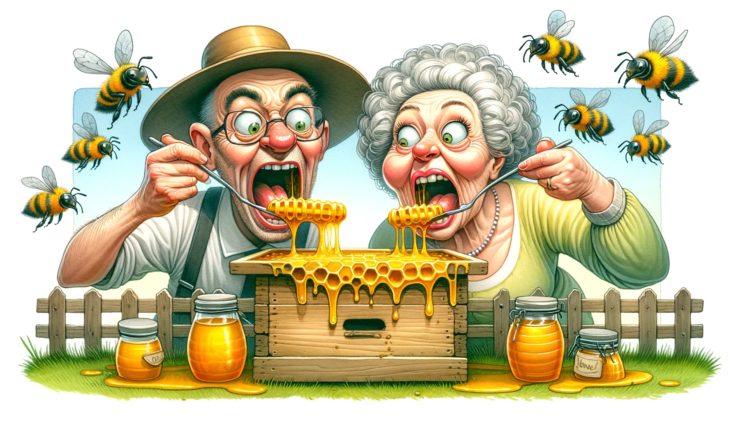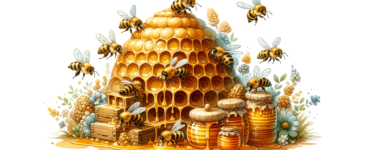Did you know that honey, while often celebrated for its natural sweetness and numerous health benefits, carries some hidden dangers? Honey requires a cautious approach when it comes to consumption.
This article is designed to guide you through the safe consumption of honey, highlighting potential risks and offering advice on avoiding them.
1. The Risk of Botulism in Infants
One of the most significant risks associated with honey is infant botulism. Honey can contain Clostridium botulinum spores, which are harmless to adults and older children but extremely dangerous for infants under one year old.((https://kidshealth.org/en/parents/botulism.html)) These spores can germinate in an infant’s immature digestive system, producing botulinum toxin. This toxin can lead to serious illness and requires immediate medical attention. Therefore, it’s crucial to avoid giving honey in any form to infants under one year of age.((https://www.cdc.gov/botulism/prevention.html)),((https://www.ncbi.nlm.nih.gov/pmc/articles/PMC3448763/))
2. Allergic Reactions
While rare, some individuals may experience allergic reactions to honey. This is particularly true for people with pollen or bee venom allergies, as honey can contain traces of these substances. Symptoms of an allergic reaction to honey can include itching, swelling, breathing difficulties, or anaphylaxis in severe cases. If you suspect you’re allergic to honey, you’re advised to consult with a healthcare professional for testing and guidance.((https://www.medicalnewstoday.com/articles/honey-allergy))
3. The Dangers of Contaminated Honey
Honey can also be contaminated with harmful substances if not properly processed or if it comes from an environment with high pollution or pesticide use. Contaminants like heavy metals, antibiotics, or pesticides can pose health risks. To minimize this risk, choose honey from reputable sources, ideally organic and raw, which is less likely to contain harmful additives or contaminants.((https://www.ncbi.nlm.nih.gov/pmc/articles/PMC3477659/))
4. High Sugar Content
Despite its natural origin, honey is high in sugar. Excessive consumption of honey can contribute to health issues such as weight gain, tooth decay, and elevated blood sugar levels. Consuming honey in moderation is important, particularly for individuals with diabetes or those monitoring their sugar intake.((https://www.goodrx.com/conditions/diabetes/can-diabetics-eat-honey))
5. Interactions with Medications
Honey may interact with certain medications, such as those that affect blood sugar levels or anticoagulants. It’s important to consult with a healthcare provider if you have any ongoing medical conditions or are taking regular medication to ensure that consuming honey won’t interfere with your treatment.((https://pharmeasy.in/blog/ayurveda-uses-benefits-side-effects-of-honey/))
6. Toxic “Mad Honey”
“Mad honey” is a special type of honey that can make people feel dizzy or even hallucinate. Bees make it from rhododendron flowers, which have grayanotoxins in them. This honey, found mainly in Turkey, is very expensive and has been used since ancient times, even in wars. A honey expert says that a little bit of it can make you feel happy or see things, but too much can make you sick or even deadly.((https://en.wikipedia.org/wiki/Grayanotoxin))
The Not-So-Sweet Side of Honey
By understanding these risks and consuming honey responsibly, you can enjoy its sweetness and health benefits without compromising your safety. Remember, moderation is key, and seek advice from a healthcare professional when in doubt.






































Add comment